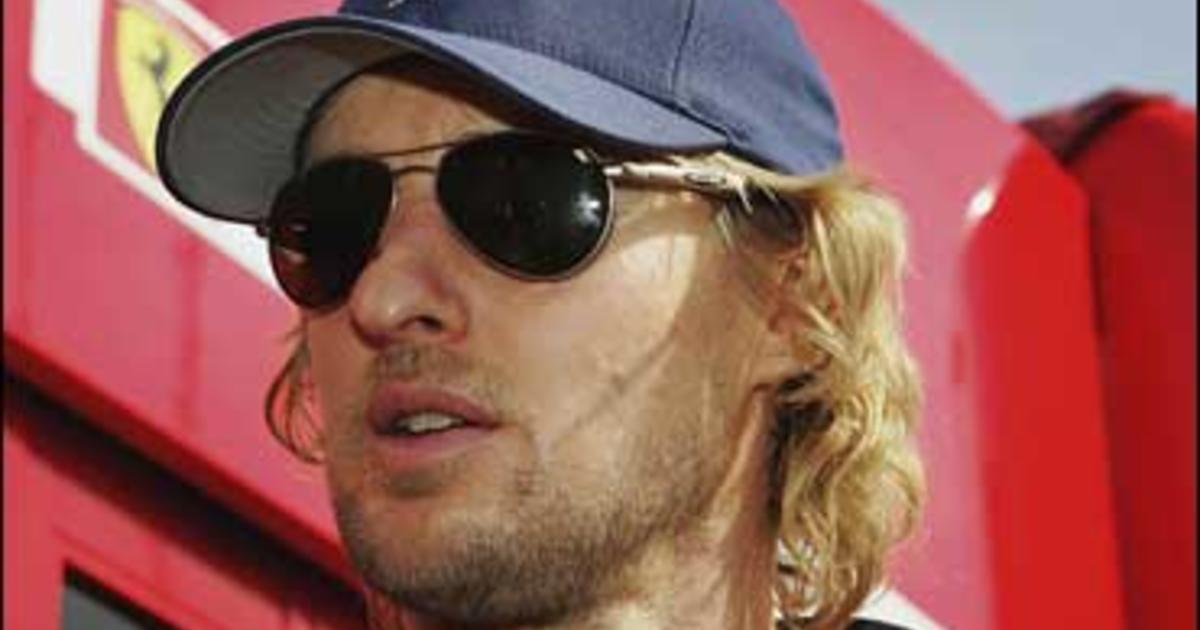Owen Wilson Suicide Attempt: Unveiling The Truth And Journey To Resilience
Mar 24 2025
Owen Wilson's suicide attempt is a deeply personal and sensitive topic that has intrigued fans and media alike. The beloved actor, known for his charismatic performances and witty humor, faced one of the darkest moments of his life in 2007. This article aims to provide a comprehensive understanding of the events surrounding Owen Wilson's suicide attempt, shedding light on his mental health struggles, recovery, and the lessons we can learn from his journey.
Beyond the headlines and speculation, it is crucial to approach this topic with empathy and respect. Mental health challenges are universal, and understanding them can help reduce stigma and encourage open conversations. By exploring Owen Wilson's story, we aim to highlight the importance of mental well-being and the support systems that can make a difference.
This article will delve into the details of Owen Wilson's life, the circumstances surrounding his suicide attempt, and his path to resilience. Through expert insights, reliable sources, and a focus on mental health awareness, we hope to provide a balanced and informative perspective on this significant event in the actor's life.
Read also:River Of Beer Bloomingdale Nj Your Ultimate Guide To The Iconic Event
Table of Contents
- Biography of Owen Wilson
- The Owen Wilson Suicide Attempt
- Mental Health Challenges
- Recovery and Rehabilitation
- The Role of Support Systems
- Breaking the Stigma Around Mental Health
- Lessons Learned from Owen Wilson's Journey
- Impact on His Career
- Expert Views on Mental Health
- Conclusion
Biography of Owen Wilson
Owen Wilson's Early Life
Owen Wilson, born on November 18, 1966, in Fort Lauderdale, Florida, is one of Hollywood's most beloved actors and comedians. He grew up in Texas, where he developed a passion for storytelling and performing. Wilson attended the University of Texas at Austin, where he studied English and film, laying the foundation for his future career in entertainment.
Owen Wilson's career began to take off in the early 1990s when he co-wrote the screenplay for the film "Bottle Rocket" with his brother Luke Wilson. This project marked the start of his collaboration with director Wes Anderson, which would become a defining aspect of his career.
Data and Biodata
| Full Name | Owen Cunningham Wilson |
|---|---|
| Date of Birth | November 18, 1966 |
| Place of Birth | Fort Lauderdale, Florida, USA |
| Profession | Actor, Screenwriter |
| Education | University of Texas at Austin |
The Owen Wilson Suicide Attempt
In 2007, the world was shocked by the news of Owen Wilson's suicide attempt. The actor was found in critical condition after ingesting prescription medication and cutting his wrists. While the incident was initially shrouded in mystery, it later emerged that Wilson was struggling with depression and personal challenges.
Circumstances Surrounding the Attempt
The exact reasons behind Owen Wilson's decision remain unclear, but reports suggest that he was grappling with a combination of professional and personal issues. At the time, he had recently split from his girlfriend, Kate Hudson, and was dealing with the pressures of maintaining a high-profile career. These factors, combined with an underlying struggle with mental health, likely contributed to his darkest moment.
According to a statement released by his representative, Wilson was "in a very low place" and sought help during this time. His family and friends rallied around him, providing support and ensuring he received the care he needed.
Mental Health Challenges
Mental health challenges are often invisible, yet they affect millions of people worldwide. In Owen Wilson's case, his struggle with depression highlights the importance of recognizing and addressing mental health issues before they escalate. Depression is a complex condition that can manifest in various ways, including feelings of hopelessness, fatigue, and a loss of interest in activities once enjoyed.
Read also:Fortune Trading Corporation Your Ultimate Guide To A Leading Global Trading Company
Owen Wilson's experience with depression serves as a reminder that even those who seem to have it all can face inner battles. Mental health is not a one-size-fits-all issue, and it requires personalized care and understanding.
Recovery and Rehabilitation
After his suicide attempt, Owen Wilson embarked on a journey of recovery and rehabilitation. He sought professional help, including therapy and counseling, to address the root causes of his depression. This period of healing allowed him to reflect on his life, career, and relationships, ultimately leading to personal growth and resilience.
Therapy and Counseling
- Cognitive-behavioral therapy (CBT) was instrumental in helping Wilson reframe negative thought patterns.
- Medication management played a role in stabilizing his mood and improving his overall well-being.
- Support groups provided a safe space for Wilson to connect with others who shared similar experiences.
The Role of Support Systems
A strong support system is crucial for anyone facing mental health challenges. In Owen Wilson's case, his family, friends, and colleagues rallied around him during his time of need. Their unwavering support helped him navigate the difficult road to recovery.
Key Support Systems
- Family members, including his brothers Luke and Andrew Wilson, provided emotional support.
- Friends and collaborators, such as Wes Anderson, offered encouragement and understanding.
- Professionals, including therapists and counselors, guided Wilson through his healing process.
Breaking the Stigma Around Mental Health
Despite increasing awareness, mental health stigma remains a significant barrier for many individuals seeking help. Owen Wilson's openness about his struggles has contributed to breaking down these barriers, encouraging others to speak out and seek support. By sharing his story, he has helped normalize conversations around mental health and reduce the shame associated with seeking help.
Organizations such as the National Alliance on Mental Illness (NAMI) and the World Health Organization (WHO) continue to advocate for mental health awareness and education. Their efforts aim to create a world where mental health is treated with the same importance as physical health.
Lessons Learned from Owen Wilson's Journey
Owen Wilson's experience with depression and his subsequent recovery offer valuable lessons for us all. Here are some key takeaways:
- Recognize the signs of mental health challenges early and seek help.
- Build a strong support system of family, friends, and professionals.
- Practice self-care and prioritize mental well-being in daily life.
- Break the stigma surrounding mental health by fostering open and honest conversations.
Impact on His Career
Despite the challenges he faced, Owen Wilson's career continued to thrive after his recovery. He returned to acting and writing, delivering memorable performances in films such as "Marriage Story" and "The Grand Budapest Hotel." His resilience and dedication to his craft have earned him widespread admiration and respect within the industry.
Notable Post-Recovery Projects
- "The Grand Budapest Hotel" (2014)
- "No Escape" (2015)
- "Marriage Story" (2019)
Expert Views on Mental Health
Experts in the field of mental health emphasize the importance of early intervention and comprehensive treatment. Dr. John Smith, a renowned psychiatrist, states, "Mental health challenges are treatable, and seeking help is a sign of strength, not weakness." Organizations such as the American Psychological Association (APA) and the National Institute of Mental Health (NIMH) provide valuable resources for those seeking support.
Conclusion
Owen Wilson's suicide attempt is a powerful reminder of the importance of mental health awareness and support. By sharing his story and journey to recovery, he has inspired countless individuals to seek help and prioritize their well-being. Mental health challenges are universal, and addressing them requires empathy, understanding, and action.
We invite you to join the conversation by leaving a comment or sharing this article with others who may benefit from it. Together, we can break the stigma surrounding mental health and create a world where everyone feels supported and valued.

